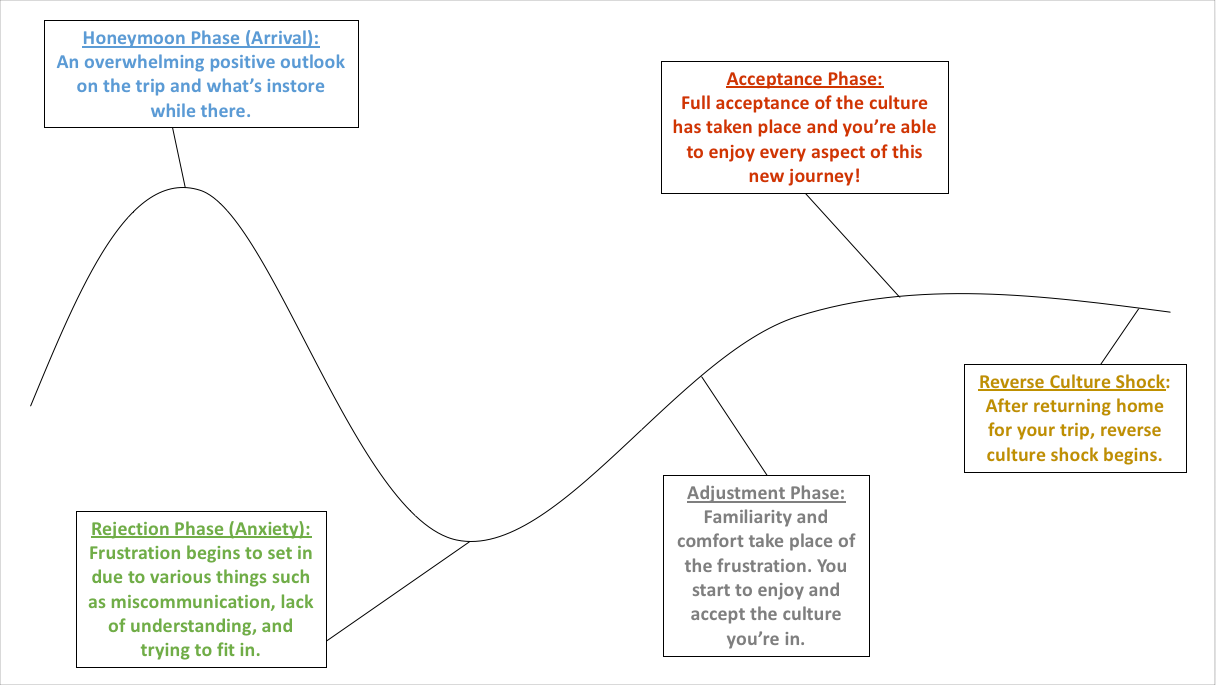Passport
A U.S. passport is your key to international travel and study abroad. Visit our Passport webpage for more information.
Disability Services Abroad
Texas State Education Abroad is committed to helping students with disabilities achieve their educational goals. Students who require special accommodations need to provide verification of their disability to the Office of Disability Services.
International Airfare Advice
Before booking or get on a flight to go abroad:
- Verify your program, travel dates, and airport.
In case you cannot access the airline's app, take a screenshot or write your flight information on your phone including confirmation number, flight number, departure and arrival times. - Check your airline's luggage restrictions and fees.
Take a photo of your luggage. In the event it gets delayed or misplace, you have an image to help you describe your luggage. - Whenever possible, get a direct flight. You want the journey to be as simple as possible. When you only have to board and exit a single place, you lessen the chance for delays, cancellation, and missed connecting flights.
- A connecting flight is where you will travel to one airport to join a different flight that will take you to your end destination. Sometimes you may have multiple stops for international flights.
- A layover is a time between these connecting flights. You will exit the plane and wait in another concourse until your next flight is ready to depart. This can be a quick turnaround or several hours long; it all depends on the flight schedule. If ou must choose a layover, pick one that is at least 2 hours between the time the plane is scheduled to land and when the next one is scheduled to depart. Any less time may result in a missed connect ing flights.
When booking your flight, remember:
- Book a direct flight whenever possible, even if it costs a little more.
- Give yourself at least 2-hour layover between connecting flights.
- Add more time to your layover if you want to eat, freshen up in the bathroom, etc.
- Re-eye flights are often cheaper but at the expense of traveling at night.
- If you see "+1" it means the arrival time is a day after your departure date.
Education Abroad strongly recommends trip cancellation/interruption insurance.
Culture Shock
Many students may feel uncertainty, anxiety, or/and confusion when traveling in another country. Culture shock is common when experiencing new surroundings and situations that are unfamiliar. Adjusting to different weather, language, food, transportation, values, and customs can take time.
Symptoms of culture shock can include: homesickness, feeling isolated, irritability, sadness, lack of concentration, and more.
There are four main stages of culture shock: the honeymoon stage, the frustration stage, the adaptation stage, and the acceptance stage.
If you are experiencing culture shock, it is important to reach out for support. Contact your family, friends, program faculty, the Education Abroad office, the Counseling Center, or On Call International so that you can received support and resources for students experiencing culture shock.

Identity
LGBTQIA+ students are encouraged to reach out to educationabroad@txstate.edu for questions and resources about LGBTQIA+ Abroad.
